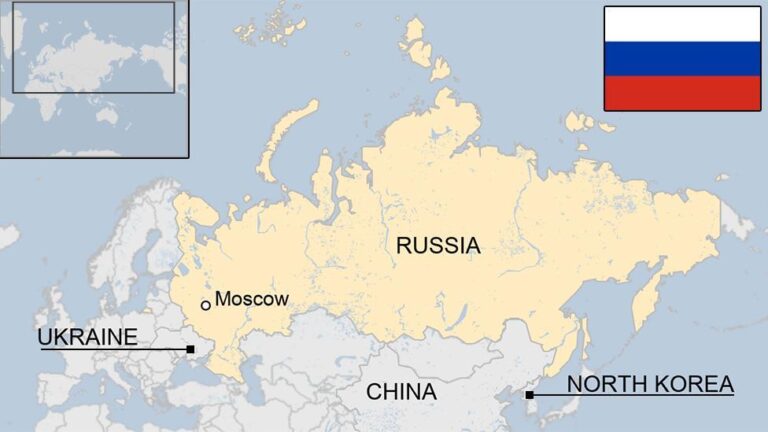In a recent statement that underscores the complex regional dynamics surrounding Eastern Europe, Belarusian opposition leader Sviatlana Tsikhanouskaya has addressed growing concerns over Russia’s military intentions in the Baltic region. While acknowledging the possibility that Moscow could leverage Belarusian territory as a launchpad for attacks against the Baltic states, Tsikhanouskaya firmly asserted that the Belarusian people themselves would not participate in such aggression. Her remarks, reported by Euronews.com, highlight the tension between Belarus’s geopolitical position and the stance of its opposition amid rising fears of escalation in the area.
Russia’s Strategic Use of Belarus Raises Security Concerns for Baltic States
Moscow’s recent military maneuvers near Belarus have ignited fresh anxiety among Baltic states, who perceive increased risk of aggression from the east. The Kremlin’s strategic deployment of troops and armaments in Belarusian territory offers Russia a expanded foothold, potentially allowing rapid mobilization against Lithuania, Latvia, and Estonia. Security analysts emphasize that this escalates regional tensions as Russia leverages Belarus’ geographical position to tighten its grip on Eastern Europe. Meanwhile, the Baltics are enhancing defensive collaborations within NATO, focusing on surveillance, troop readiness, and cyber defense to counterbalance the perceived threat.
However, opposition leader Svetlana Tsikhanouskaya strongly rejects the notion that Belarusian forces would support or participate in any military aggression against the Baltic neighbors. She accentuates the distinction between the Belarusian government’s alignment with Russia and the broader sentiment of the Belarusian people, many of whom oppose hostile actions and yearn for peace. Tsikhanouskaya highlighted key reasons why Belarusians are unlikely participants in such conflicts:
- Public opposition: Majority of citizens reject use of their land for offensive campaigns.
- Risk of national destabilization: Engaging in war could exacerbate internal unrest.
- International isolation: Escalation would further damage Belarus’ global standing.
| Aspect | Russian Military Activity | Belarusian Public Sentiment |
|---|---|---|
| Troop Presence | Substantial troop buildup along borders | Opposed due to fear of escalation |
| Use of Territory | Potential staging ground for offensive operations | Resisted as violation of national sovereignty |
| Political Alignment | Strong Kremlin influence | Widespread pro-democracy sentiment |
Belarusian Opposition Leader Tsikhanouskaya Condemns Potential Aggression Against the Baltics
Sviatlana Tsikhanouskaya has issued a stark warning against the possibility of Belarus being used as a launchpad for aggression targeting the Baltic states. Emphasizing her commitment to peace, she firmly rejects any notion that Belarusians would support or participate in military actions against their neighbors. Tsikhanouskaya highlights that the Belarusian people yearn for stability and sovereignty, distancing themselves from Kremlin-led ambitions that could embroil the region in conflict.
In her statement, Tsikhanouskaya outlined key concerns regarding the geopolitical ramifications of potential hostilities, underscoring the following points:
- Belarusian sovereignty must be respected, preventing its exploitation in foreign conflicts.
- The Belarusian opposition advocates for peaceful diplomacy over military escalation.
- Any acts of aggression would deepen regional instability, harming civilians.
- International actors should support Belarusian efforts toward democratic reforms.
| Key Concerns | Implications |
|---|---|
| Use of Belarusian territory | Threatens sovereignty & regional peace |
| Forced military involvement | Contradicts Belarusian public will |
| International response | Critical for de-escalation & reform support |
Calls for Strengthened Baltic-NATO Cooperation to Deter Regional Escalation
Amid growing concerns over Russia’s strategic ambitions in Eastern Europe, calls for enhanced collaboration between Baltic states and NATO have intensified. Experts emphasize that while Moscow could potentially leverage Belarusian territory for military maneuvers against the Baltics, the Belarusian populace remains largely resistant to such actions. Opposition leader Sviatlana Tsikhanouskaya underlined that the Belarusian people do not support aggression toward neighboring countries, highlighting a critical distinction between political regimes and citizen sentiment in the region.
To bolster deterrence and maintain regional stability, military analysts recommend a multi-faceted approach emphasizing:
- Joint military exercises to demonstrate readiness and foster interoperability.
- Intelligence sharing aimed at early detection of unconventional tactics or deployments.
- Enhanced cyber defense measures to counter hybrid warfare threats.
- Persistent diplomatic engagement with Belarusian civil society to empower pro-democratic forces.
| Measure | Purpose | Expected Impact |
|---|---|---|
| Joint Military Exercises | Enhance operational readiness | Strengthened regional defense |
| Intelligence Sharing | Early threat detection | Improved response times |
| Cyber Defense | Protect critical infrastructure | Resilience to hybrid attacks |
| Diplomatic Engagement | Support civil society | Undermine authoritarian influence |
Closing Remarks
As tensions continue to mount in Eastern Europe, the statements from opposition leader Sviatlana Tsikhanouskaya underscore the complex dynamics at play between Russia, Belarus, and the Baltic states. While Moscow’s strategic intentions remain a cause for concern, Tsikhanouskaya’s assurance that the Belarusian people oppose involvement in any aggression offers a critical perspective on the human dimension behind geopolitical maneuvers. The coming weeks will be crucial in monitoring how these developments unfold and the responses from the international community.



